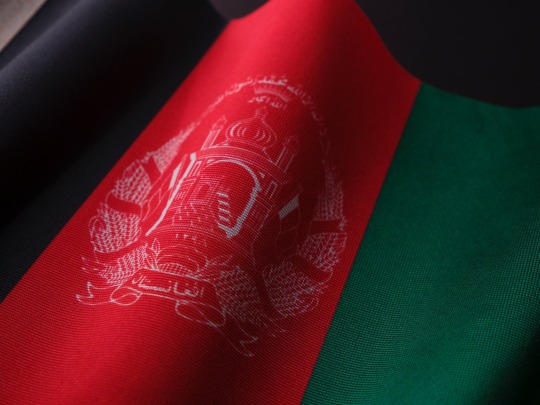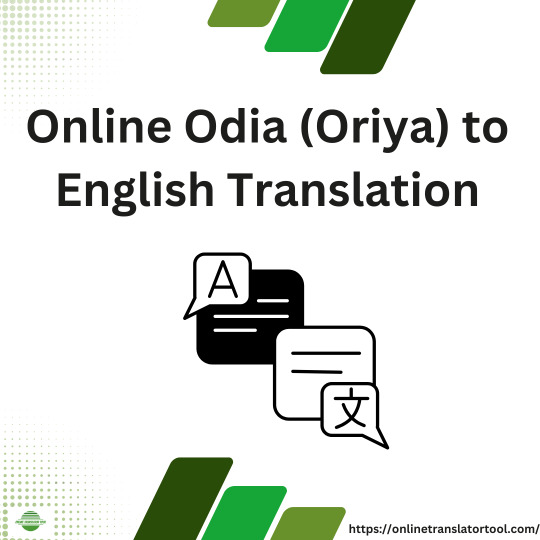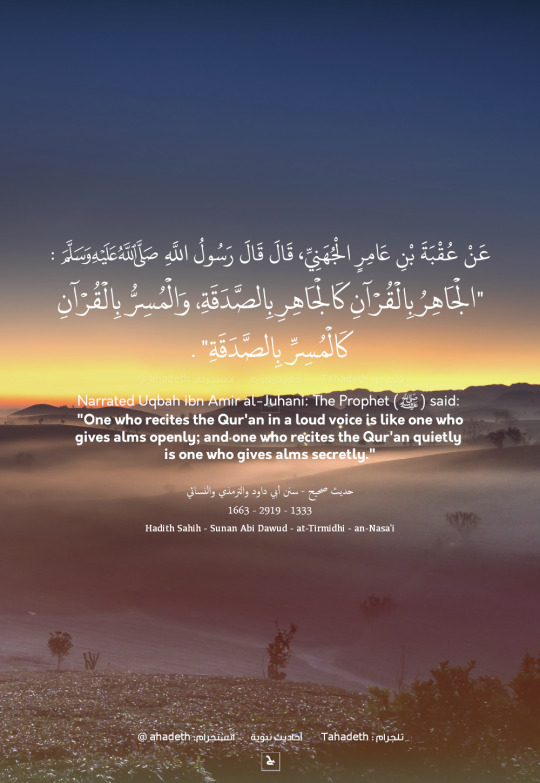#pashto translation
Explore tagged Tumblr posts
Text
Online Pashtu to English Translation Services - Quickly and Accurately Translate Pashto Conversations
Pashtu to English: Unlocking Opportunities for Immigrant Families For the nearly 40 million Pashto speakers around the world, communicating across languages can often get lost in translation. As more Afghan and Pakistani immigrants settle in America, bridging the cultural and linguistic divides through accurate Pashto to English translation becomes increasingly vital. This comprehensive guide…

View On WordPress
#afghan immigrants#dari translation#english learners#pakhto#pakistani immigrants#pashto#pashto to english#pashto translation#pushto
0 notes
Quote
زما د گل په شان صورت وه ستا د بيلتون په خزان مراوی شوی مينه I had a face like flowers But, my love! Separation from you has turned me into autumn
Pashto landay
80 notes
·
View notes
Text
کهوا که مه کهنا مازا هسار سها.
Translation:
Sit by my side, and don’t leave; stay.
7 notes
·
View notes
Text

It could be difficult for persons whose first language is not English to translate from Odia to English. Numerous companies and websites offer services for translation, localization, and interpreting. You can translate phrases, sentences, and words that are used frequently for free. To do this, use our online Odia to English translator.
0 notes
Photo

Free online Pashto to English translation site to easily Translate Pashto text into English . You can translate words, sentences and paragraphs from Pashto to English easily and fast!
0 notes
Text
In 2020, Uma Mirkhail got a firsthand demonstration of how damaging a bad translation can be. A crisis translator specializing in Afghan languages, Mirkhail was working with a Pashto-speaking refugee who had fled Afghanistan. A U.S. court had denied the refugee’s asylum bid because her written application didn’t match the story told in the initial interviews. In the interviews, the refugee had first maintained that she’d made it through one particular event alone, but the written statement seemed to reference other people with her at the time — a discrepancy large enough for a judge to reject her asylum claim. After Mirkhail went over the documents, she saw what had gone wrong: An automated translation tool had swapped the “I” pronouns in the woman’s statement to “we.” (...) Whether automated or not, translation flubs in Pashto and Dari have become commonplace. As recently as early April, the German Embassy to Afghanistan posted a tweet in Pashto decrying the Taliban’s ban on women working. The tweet was quickly ridiculed by native speakers, with some quote tweets claiming that not a single sentence was legible. “Kindly please don’t insult our language. Thousands [of] Pashtun are living in Germany but still they don’t hire an expert for Pashto,” posted one user, researcher Afzal Zarghoni. The German Embassy later deleted the tweet. Seemingly trivial translation errors can sometimes lead to harmful distortions when drafting asylum applications.
#ai#tech#asylum#abolish borders#pol#obviously the issue here is far deeper than ai or machine translation but man this is so depressing
1K notes
·
View notes
Text

عَنْ عُقْبَةَ بْنِ عَامِرٍ الْجُهَنِيِّ، قَالَ قَالَ رَسُولُ اللَّهِ صلى الله عليه وسلم : " الْجَاهِرُ بِالْقُرْآنِ كَالْجَاهِرِ بِالصَّدَقَةِ، وَالْمُسِرُّ بِالْقُرْآنِ كَالْمُسِرِّ بِالصَّدَقَةِ " . حديث صحيح - سنن أبي داود ١٣٣٣ - والترمذي ٢٩١٩- والنسائي ١٦٦٣
Narrated Uqbah ibn Amir al-Juhani: The Prophet (ﷺ) said: "One who recites the Qur'an in a loud voice is like one who gives alms openly; and one who recites the Qur'an quietly is one who gives alms secretly." Hadith Sahih - Sunan Abi Dawud 1333 In-book reference : Book 5, Hadith 84 | Jami` at-Tirmidhi 2919 In-book reference : Book 45, Hadith 45 | Sunan an-Nasa'i 2561 In-book reference : Book 23, Hadith 127
قال الترمذي: وَمَعْنَى هَذَا الْحَدِيثِ أَنَّ الَّذِي يُسِرُّ بِقِرَاءَةِ الْقُرْآنِ أَفْضَلُ مِنَ الَّذِي يَجْهَرُ بِقِرَاءَةِ الْقُرْآنِ لأَنَّ صَدَقَةَ السِّرِّ أَفْضَلُ عِنْدَ أَهْلِ الْعِلْمِ مِنْ صَدَقَةِ الْعَلاَنِيَةِ وَإِنَّمَا مَعْنَى هَذَا عِنْدَ أَهْلِ الْعِلْمِ لِكَىْ يَأْمَنَ الرَّجُلُ مِنَ الْعُجُبِ لأَنَّ الَّذِي يُسِرُّ الْعَمَلَ لاَ يُخَافُ عَلَيْهِ الْعُجْبُ مَا يُخَافُ عَلَيْهِ مِنْ عَلاَنِيَتِهِ . جامع الترمذي
العِباداتُ كلُّها يَنبَغي أن تَكونَ خالِصةً لوجهِ اللهِ، ولا يُطلَبَ بها الرِّياءُ ولا السُّمعةُ ولا التَّفاخرُ بينَ النَّاسِ؛ لأنَّ اللهَ غنيٌّ عن كلِّ ذلك، وإنَّما يَقبَلُ مِن تلك العباداتِ ما كان خالِصًا لوجهِه سبحانَه. وفي هذا الحديثِ يَقولُ النَّبيُّ صلَّى اللهُ علَيْه وسلَّم: "الجاهرُ بالقرآنِ"، أي: الَّذي يَرفَعُ صوتَه بالقرآنِ في القِراءةِ، وخاصَّة أمامَ النَّاسِ؛ "كا��جاهرِ بالصَّدقةِ"، أي: مِثلُ المُجاهِرِ المُعلِنِ لصَدقتِه أمامَ النَّاسِ "والمُسِرُّ بالقرآنِ كالمُسِرِّ بالصَّدقةِ"، أي: مَن يقرَأُ في سِرِّه ويتَدبَّرُ بعَقلِه مِثل الَّذي يُخفِي صَدَقتَه عن أعيُنِ النَّاسِ، والإسرارُ أفضلُ في حَقِّ مَن يَخافُ الرِّياءَ؛ لأنَّ الإسرارَ أبعدُ عن الرِّياءِ؛ فإنْ لم يَخَفْ، فالجهرُ أفضلُ بشَرْط ألَّا يُؤذِي غيرَه ولا يتأذَّى بقِراءتِه أحدٌ كمُصلٍّ أو نائمٍ أو غيرِهما، والعملُ في الجَهرِ أكثرُ، ويَتعدَّى نفْعُه إلى غيرِ القارئِ؛ ويُوقِظُ قلبَ القارِئ، ويَجمَع همَّه إلى الفِكر، ويصرِفُ سمْعَه إليه؛ ويطرُد النومَ، ويزيدُ في النشاط؛ فمتَى حضَره شيءٌ من هذه النِّيات؛ فالجهرُ أفضلُ؛ فإذا كان الجهرُ يترتَّبُ عليه مصلحةٌ، فهذا الجهرِ أوْلَى، وإذا لم يَكُن في الجَهرِ مَصلحةٌ فالإسرارُ أَوْلَى، فهذا أفضلُ مِن هذه الناحيةِ. وقيل: ما كان فيه التدبرُ أتمَّ فهو الأفضلُ. وفي الحديثِ: مدْحُ الإسرارِ بالعِباداتِ معَ إخلاصِها للهِ. وفيه: بيانُ أنَّه لا أجْرَ لِمَن يُرائِي بعِلْمه وقِراءَتِه. الدرر السنية
Reciting the Qur’an secretly is better, just as giving charity secretly is better, for the sincerity involved and the avoidance of show-off and self-admiration, unless if openness is required for some need or benefit, like teaching the Qur’an to others. Hadith Translation/ Explanation : English Urdu Spanish Indonesian Uyghur Bengali French Turkish Bosnian Sinhalese Indian Vietnamese Tagalog Kurdish Hausa Portuguese Malayalam Telgu Swahili Tamil Burmese Thai German Pashto Assamese Albanian Swedish Amharic Dutch Gujarati Kyrgyz Nepali Yoruba Lithuanian Dari Serbian Somali Tajik Kinyarwanda Romanian Hungarian Czech Malagasy Italian Oromo Kannada Azeri Uzbek Ukrainian: https://hadeethenc.com/en/browse/hadith/65055
#حديث#أحاديث نبوية#الرسول صلى الله عليه وسلم#رسول الله صلى الله عليه وسلم#صلى الله عليه وسلم#النبي محمد صلى الله عليه و آله وسلم#محمد صلى الله عليه وسلم#اللهم صل وسلم على نبينا محمد#تلاوة#قيام الليل#القرآن الكريم#قراءة القرآن#تدبر القرآن#تلاوة القرآن#سر#جهر#الصدقة#صدقة#hadith#ahadeth#hadeth#hadith sahih#sunnah#islam#muslim#prophet muhammad#sunna#hadiths#quran#quran recitation
40 notes
·
View notes
Text
In Pashto, we don't say “I love you” we say “de stargo tora” which translates to “the black of my eyes”. Means the thing that makes me feel beautiful.
#and i think that's beautiful#pashto#pakistan#desi#desi tag#desi things#desi teen#desi romance#desi dark academia#desi culture#desi academia#desiblr#desi aesthetic#desi shit posting#romance#pakistani culture#mehreen khan#romantic academia
245 notes
·
View notes
Text
I don't know if now is exactly the right time for this, considering everything that is going on, but I've had this post in the drafts for a while, so idk. A collection of random things I've noticed after a year of the QSMP in action (though I've only been involved in the fandom since late October).
Genuinely something fairly long, and I don't want to clog up anyone's feed with this mess of a post, so >
(colors don't mean anything in particular, I just needed to break up the text for my own attention span's sake)
Regardless of the fact that the translation feature exists, QSMP members always seem to make an effort to learn a few words in the language of other members. I frequented Tubbo's streams a lot, and I can remember him looking up Korean greetings back when Acau was just joining the server. Tina, while not fluent in the language, made an effort to converse with the newer Korean members in Korean on multiple occasions, and succeeded in that regard. BadBoyHalo and Foolish both went above and beyond to try to learn bits and pieces of the other languages on the server; Cellbit has been absolutely insane in picking up the languages present on the server, and even Quackity has worked on learning Portuguese behind the scenes with Mike. They aren't the only ones either, not by a long shot, though they were some of the few I watched happening in real time. The first days of different members joining the server were filled with exchanges of words and slang, and it was always incredible to watch. I could go onto the streams of Quackity or Tubbo or Tina when the new Korean members were joining, or Hugo, and walk away with a handful of new swears and slang under my belt. I find it incredible that everyone works so hard to communicate with each other beyond only the translation feature.
The impact of the QSMP was not on the permanent members of the server alone. While this is only one example of a great amount, I've been able to watch Aimsey's intermittent streams where they work on learning Brazilian Portuguese on Duolingo, their most recent only around three weeks ago. They joined Purgatory 2 months ago, but they made lasting friends with the Brazilian members of their team, and they still work on learning the language. They still talk about taking a trip down to Brazil to meet up with their fellow Purgatory 2 teammates, alongside Tubbo. I find that to be quite sweet, if I'm being frank.
The fandom has also worked across that language barrier. QSMP Language Day was one example of this (rip, such great idea, I had so much fun but oh my goodness did that day end terribly), though I have to give a shocking amount of credit to QSMP Twitter. It's always awesome to see the posts that trickle through in different languages, just seeing people discuss different headcanons and theories that they have in different languages, like it's nothing. The translation feature has come in clutch many, many times, but a lot of people have been working to genuinely learn a language since the server started. To those of you reaching your 1 year streak on Duolingo this week, I commend you. I just reached my 60 day one, and while it's not a lot compared to what some people have, it's a pretty big deal for me. I've seen Twitch chats filled with French, German, English, Spanish, Portuguese, and Korean. In one stream I could count spotting seven separate languages being spoken in the span of roughly seven minutes (not including French, idk where you guys went but I just did not spot you once): English, Spanish, Korean, Portuguese, German, Pashto, and Russian. QSMP Language Day was amazing, even if it was cut short by news about the admins, and it's just been really cool to see people communicating in their own respective first languages.
Translation in general. I've seen an uptick of translated closed captioning in videos created by different QSMP members, and while it isn't a lot, it's incredible to see when it does occur. I have to give a shout out to both Quackity and Baghera, for their translated closed captioning. Even if it's only a few videos, it's epic to see. I also find it very interesting that the only Offline TV video I've seen with closed captioning in more than one language was the one that Quackity was in, with Spanish subtitles. It shows that the creators care enough to add the captioning, and I think that's pretty awesome. It's also nice because often adding captions in another language forces you to add captions in the language you're primarily speaking throughout the video, which can help people who need context beyond the often messy auto-generated closed captions.
Fanfiction! Fanart! The most kudosed fanfiction on AO3 in Portuguese of any type is a GuapoDuo fanfic! Almost half of the top twenty most kudosed fanfictions in Portuguese on AO3 are QSMP. I talk about it a bit more in depth here, but it's still incredible to see just how dedicated this community is. I've been involved in multiple fic-gifting events and I've seen some genuinely incredible works come out of this fandom. Heck, I've created a lot of things for the QSMP that I'm incredibly proud of. I've seen some of the most incredible creative expression ever come out of this fandom. The tiniest accounts on YouTube posting full-length, colored animatics complete with the smallest of details (shout out to Artydrawsthings on YouTube for I GOT LOVE, that was absolutely incredible), fanfic authors writing massive A.U.s that explore every character in depth, and livebloggers that will analyze each and every movement to gush over it all. The fandom that the QSMP has built has been incredible, and it's been amazing to see it grow.
Just in general, the sense of community, and overall joy the QSMP has created. You can tell that this a passion project, created by someone who genuinely cared about and believed that what they were doing was something they wanted to be doing, and managed by people who believed that the project was doing great things. I think this is what made the QSMP flourish. It was built off people who were happy on the server, and it truly accomplished what it set out to accomplish: uniting communities. I could have said this two weeks ago, three, a month, five months, half a year; it would have held true nonetheless. However, for the QSMP's first anniversary, I think it's fitting to give it this achievement.
The QSMP without a doubt has its gaping flaws. That isn't something we can ignore, and it isn't something that we should try to. However, to ignore everything that this server has done in the year it has existed would be a crime in my eyes. I'm glad to have been a part of this fandom, and maybe I can't speak Portuguese or Spanish or German and I won't ever be able to French or Korean or whatever languages the QSMP will go on to add (sorry French, rip), but I know a lot more than I did when I started, and I think that the server has done a lot of good in the roughly year it has existed.
So thank you, to the fandom, to the server, and to everyone who made this happen, from the fanartists and the egg admins to Quackity at the top of it all. It's been a great ride, and I hope that it'll be able to continue.
#qsmp#happy birthday qsmp#sorta#i can't remember its exact birthday lol#quackity#baghera jones#badboyhalo#cellbit#because I talk about them a bit#I don't really know what to tag this with to be honest#y'all have been great#and it's been awesome to see how far this fandom has come since I got involved in it#shout out to bbh and yd who have been absolute gems#it's been so cool watching everyone's language skills grow both in the server and outside of it#that's really all
22 notes
·
View notes
Text
Midway through Jamil Jan Kochai’s collection The Haunting of Hajji Hotak and Other Stories, which maps generations of Afghan and Afghan American lives against over a century of entwined wars, sits what appears to be a résumé. Entitled “Occupational Hazards,” it meticulously records the everyday labors of an Afghan man: [...] his “[d]uties included: leading sheep to the pastures”; from 1977–79, “gathering old English rifles” left over from the last war while being recruited into a new war; in 1980–81, “burying the tattered remnants of neighbors and friends and women and children and babies and cousins and nieces and nephews and a beloved half-sister”; [...] becoming a refugee day-laborer in Peshawar, Pakistan; in 1984, becoming a refugee in Alabama, where he worked on an assembly line with other Asian migrants whom the white factory owner used to push out the local Black workforce; and so on. Dozens of events, from the traumatic to the mundane, are cataloged one by one in prose that is at once emotionless and overwhelming. [...] Kochai interviewed his father for the résumé’s occupational trajectory [...]. An Afghan shepherd [...] is displaced by imperial wars and then, in the heart of empire, is conscripted into racialized domestic economies [...]. [M]ethodically translating lived violence via a résumé, a bureaucratic form that quantifies labor in its most banal functionality, paradoxically realizes the spectacular breadth of war and how it organizes life’s possibilities. [...]
---
In this collection, war is past, present, and plural. In Afghanistan, Kochai recounts the lives of Logaris and Kabulis, against the backdrop of the US occupation, still dealing with the detritus of previous wars - British, Soviet, and civil - including their shrines, mines, and memories. In the United States, Afghan Californians experience the diasporic conditions of war -- state neglect of refugees combined with targeted surveillance -- amid the coming-of-age of a second generation that must confront inherited traumas while struggling to build political solidarities with other displaced youth.
These 12 stories explore the reverberations between historical and psychic realities, invoking a ghostly practice of reading. Characters, living and dead, recur across the stories [...]. Wars echo one another [...]. Scenes and states mirror each other, with one story depicting Afghan bureaucracies that disavow military and police violence while another depicts US bureaucracies that deny social services to unemployed refugees. History itself is layered and unresolved [...]. Kochai, who was born in a refugee camp in Peshawar, writes from the position of the Afghan diaspora [...]. In August 2021, the US relegated Afghanistan to the past, declaring the “longest American war” over. Over for whom? one should ask. [...] War, in other words, is not an event but a structure. [...]
---
In Kochai’s collection, war is not the story; rather, war arranges the scenes and life possibilities [...]. Kochai carefully puts war itself, and the warmakers, in the narrative background [...].
This is a historically incisive narrative design for representing Afghanistan. Kochai challenges centuries of Western colonial discourses, from Rudyard Kipling to Rambo, that conflate Afghanistan with violence while erasing the international production of that violence as well as the social and conceptual worlds of Afghans themselves. Instead, this collection moves the reader across Afghans’ transcontinental, intergenerational, and multispirited social worlds -- including through stories of migrations and returns, homes populated by the living and the martyred, language that enmeshes Dari, Pashto, and Northern California slang, as well as the occasional fantastical creature [...].
---
Like Kochai’s debut novel 99 Nights in Logar (2019), this collection merges realism and the fantastic, oral and academic histories, Afghan folklore and Islamic texts, giving his fiction a dynamic relation to history. Each story is an experiment, and many of them are replete with surreal or magical elements [...].
As in Ahmed Saadawi’s 2013 novel Frankenstein in Baghdad, a nightmarish sensorium collides with a postcolonial body politics [...].
In a recent interview, Kochai said that writing about his family’s experiences of war has compelled him to explore “realms of the surreal or magical realism […] because the incidents themselves seem so unreal […]. [I]t takes years and decades to even come to terms with what had actually happened to them before their eyes.” He points not to a documentary dilemma but to an epistemological one. While some scholars have argued that fantastic genres like magical realism are often conflated with exoticized imaginaries of the Global South, others have defended the form’s critical possibilities for rendering complex realities and multiple modes of interpretation. Literary metaphors, whether magical or otherwise, are always imprecise; as Afghan poet Aria Aber puts it, “you flee into metaphor but you return / with another moth / flapping inside your throat.” [...]
Kochai does not “escape” into the surreal or magical as fictions but as other ways of reckoning with war’s pasts ongoing in the present.
---
All text above by: Najwa Mayer. “War Is a Structure: On Jamil Jan Kochai’s “The Haunting of Hajji Hotak and Other Stories.”“ LA Review of Books (Online). 20 December 2022. [Bold emphasis and some paragraph breaks/contractions added by me. Presented here for commentary, teaching, criticism.]
#haunting#tidalectics#carceral geography#intimacies of four continents#multispecies#gothic#geographic imaginaries#frankenstein in baghdad#afghan#carceral archipelago
95 notes
·
View notes
Note
Hi 👋🏻 Okay, here is a prompt for Vostanik Sabatino 😎 #7 “Now she’s stronger than you know A heart of steel starts to grow” from the ‘Thursday Radio Show Prompt List! - Short But Sweet!’. Thank you so much.

References to upcoming chapters in the StolenMoments! Series
You don’t see Sabatino for four months after Afghanistan, it isn’t until he turns up on one of your cases that you even realise he’s back in the country. When he steps into the boat shed and your eyes meet, it’s like the entire world falls away and you’re taken back to the last time the two of you were together, tangled up on the floor of your bunk room.
There’s barely any time to talk. The case moves quickly. There’s other people around and you’re both out of the door chasing down different leads.
When he catches up with you again, it’s the early hours of the morning and you’re standing on the wooden decking outside of the boathouse, leaning on the railing that lines it. The moon’s high tonight and you’re staring out across the dark water, listening to the sound of the waves as they crash against the stilts. He can taste the salt in the air when he steps outside to join you. He tucks his hands into the pockets of his quilted jacket as he comes to stand alongside of you, his gaze fixed on the shimmer of the moon in the distance.
“Pashto was a nice touch.” He remarks, referring to the letter you’d tucked into his backpack back in Afghanistan.
The edges of your mouth tip up into a smile.
“I had a good teacher.” You remind him and he thinks about those nights, curled up on the couch in the command centre as he helped you relearn the language.
“I meant what I said.” He tells you. “In the back of the chopper.”
“Yes sirum yem k’ez,” he had whispered to you, his hand gripping yours as the blood pulsed out of his chest. You hadn’t understood the words, not at the time. It wasn’t until Sam translated them from Armenian that you realised what he was trying to say.
I love you.
He leans on the railing beside you, his elbow nudging lightly against yours.
“I meant it too.” You say quietly tilting your head towards him.
It’s the first time he’s laid eyes on you properly all day and he finds himself studying your features searching for signs of what you’d endured over there. There’s a slender white scar close to your hairline, one that he knows came from the butt of a gun.
“I wanted to be here after…” He trails off because deep down he’s ashamed about that, that he disappeared from your life when you needed him the most.
“I have a feeling that wherever you were it was with great reluctance.” You tell him as your fingers thread through his, your thumb chases over the curve of his hand and he exhales because until this moment he hadn’t realised just how much he’d missed your touch.
“Germany.” He says quietly. “The healing process took a lot more time than expected and the CIA don’t like leaving their operatives vulnerable.”
There’s a bitterness in his tone and you can read between the lines, he’d been an unwilling patient.
“I don’t know how this works.” You say softly, your eyes raising up to meet his. You’ve forgotten what it’s like to be in his proximity, how he makes you feel like you’re the only woman in the world when he looks at you. “We never talked about what would happen when we left Afghanistan.”
“No.” He whispers as his lips brush over yours. “Maybe we should.”
Love Nik? Don’t miss any of his stories by joining the taglist here.
Interested in supporting me? Join my Patreon for Bonus Content!
Like My Work? - Why Not Buy Me A Coffee
@kmc1989
#nik sabatino#nik sabatino x reader#nik sabatino x you#sabatino#sabatino x reader#sabatino x you#ncis los angeles#vostanik sabatino x reader#vostanik sabatino x you#ncis la#vostanik sabatino
14 notes
·
View notes
Text

Do you need to translate a website or an email from a supplier in Odia for your international trip? An online translator utility introduces programmes that quickly translate between English and Odia!
0 notes
Photo

Free online English to Pashto translation site to easily Translate English text into Pashto . You can translate words, sentences and paragraphs from English to Pashto easily and fast!
0 notes
Text
i still think the movie arrival was stupid.
I like that the army were dumb and like oh u translated pashto u can totally talk to aliens
but also like chomsky will die by my hand
6 notes
·
View notes
Text

عَنْ أَبِي بَكْرِ بْنِ أَبِي مُوسَى، عَنْ أَبِيهِ، أَنَّ رَسُولَ اللَّهِ صلى الله عليه وسلم قَالَ " مَنْ صَلَّى الْبَرْدَيْنِ دَخَلَ الْجَنَّةَ ". صحيح البخاري ومسلم حديث ٥٧٤ - ٦٣٥
Narrated Abu Bakr bin Abi Musa: My father said, "Allah's Messenger (peace be upon him) said, 'Whoever prays the two cool prayers (`Asr and Fajr) will go to Paradise.' " Sahih al-Bukhari 574 In-book reference : Book 9, Hadith 50 | Sahih Muslim 635a In-book reference : Book 5, Hadith 271
فى حديث جرير فضل المبادرة والمحافظة على صلاة الصبح والعصر، وأن بذلك تناول رؤية الله تعالى، يوم القيامة، وإنما خصتا بالذكر والتأكيد لفضلهما باجتماع ملائكة الليل، وملائكة النهار فيها، وهو معنى قوله تعالى: (إن قرآن الفجر كان مشهودًا) [الإسراء: ٧٨] . وأما قوله عليه السلام: (من صلى البردين دخل الجنة) ، فإن أبا عبيدة قال: المراد بذلك الصبح والعصر، والعرب تقول للغداة والعشى: بردا النهار وأبرداه، قال الخطابى: وإنما قيل لهما: بردان، وأبردان لطيب الهواء، وبرده فى هذين الوقتين،... شرح صحيح البخاري لابن بطال
فضَّلَ الله عزَّ وجلَّ بحِكمتِه بعضَ العِباداتِ على بعضٍ؛ لِما تتميَّزُ به، وجعَلَها سَببًا لدُخولِ الجنَّةِ، ومِن تِلك الأعمالِ ما ذَكَرَه النبيُّ صلَّى اللهُ عليه وسلَّمَ في هذا الحديثِ عن فَضلِ صَلاتَيِ البَرْدَيْنِ، وهُما الفَجرُ والعَصرُ، وسُمِّيَتا بهذا الاسمِ؛ لأنَّهما يَقعانِ في وقتِ إبرادِ الجَوِّ وتلَطُّفِه في الصَّباحِ حيثُ تَظهرُ رُطوبةُ الهواءِ وبُرودَتُه، وعندَ العصرِ حيثُ يَظهرُ انكِسارُ حرارةِ النَّهارِ والدُّخولُ في وقتِ اعتدالِ الجَوِّ، حيثُ بَيَّنَ النبيُّ صلَّى اللهُ عليه وسلَّمَ أنَّ مَن صلَّى هاتَينِ الصَّلاتَينِ بِحقِّهِما دخَلَ الجنَّةَ.وخصَّ هنا الفَجرَ والعصرَ؛ لأنَّ الفَجرَ يكونُ عندَ لذ��ّةِ النَّومِ، والعصرَ يكونُ عندَ اشتِغالِ الإنسانِ بعَملِه، فمَن حافَظ�� عليهِما كان مِن بابِ أَوْلى أنْ يُحافِظَ على بقيَّةِ الصَّلواتِ. وقيل: إنَّما خُصَّتَا بالذِّكْرِ والتأكيدِ؛ لفَضْلِهما باجتِماعِ مَلائكةِ اللَّيلِ وملائكةِ النَّهارِ فيهما، وتعاقُبِهم وصُعودِهم إلى السَّماءِ فيُخبِرون اللهَ بأحوالِ العِبادِ وهو أعلَمُ بهم؛ فالأَولى أن يَكونَ العبدُ على طاعةٍ في هذَينِ الوقتَينِ لِيَفوزَ بالجَنَّةِ، وقد قال تعالى مِصْداقًا لذلك: {وَسَبِّحْ بِحَمْدِ رَبِّكَ قَبْلَ طُلُوعِ الشَّمْسِ وَقَبْلَ الْغُرُوبِ} [ق: 39].وفي الحديثِ: فَضلُ المحافَظةِ على صَلاتَيِ الفَجرِ والعصرِ.وفيه: عِظَمُ أجرِ العِبادةِ وقْتَ التَّشاغُلِ والغَفلةِ. الدرر السنية
The Prophet (may Allah's peace and blessings be upon him) encourages the observance of the Bardayn, namely the Fajr and ‘Asr prayers. He gave glad tidings for whoever observes them in their due manner in terms of time, congregation, etc, that they would be a means of admitting him to Paradise.
Benefits from the Hadith
The merit of observing the Fajr and ‘Asr prayers; is that the Fajr occurs at the time of deep sleep and ‘Asr occurs when one is occupied with his work. Therefore, whoever observes them will observe the rest of the prayers with greater reason.
The Fajr and ‘Asr prayers were called "Bardayn" because of the cold night breeze at the time of the Fajr prayer and the cold daytime breeze at the time of the ‘Asr prayer, even though it is hot at that time yet it is less hot than the time that precedes it; or they were called by way of dominance, as the sun and moon are called: the two moons. Hadith Translation/ Explanation : English Urdu Spanish Indonesian Uyghur Bengali French Turkish Russian Bosnian Sinhalese Indian Chinese Persian Vietnamese Tagalog Kurdish Hausa Portuguese Malayalam Telgu Swahili Thai Pashto Assamese Swedish Amharic Dutch Gujarati Kyrgyz Nepali Yoruba Dari Serbian Somali Kinyarwanda Romanian الموري Malagasy Oromo Kannada: https://hadeethenc.com/en/browse/hadith/4198
#حديث#أحاديث نبوية#الرسول صلى الله عليه وسلم#hadith#صلى الله عليه وسلم#النبي محمد صلى الله عليه و آله وسلم#حديث صحيح#صلاة#البردين#صلاة الفجر#صلاة العصر#الصلاة#محافظة#الصلوات#بردين#sunnah#islam#ahadeth#hadeth#muslim#hadith sahih#prophet muhammad#prophet muhammed pbuh#hadiths#pray#prayer#fajr prayer#asr prayer#salat#salah
22 notes
·
View notes
